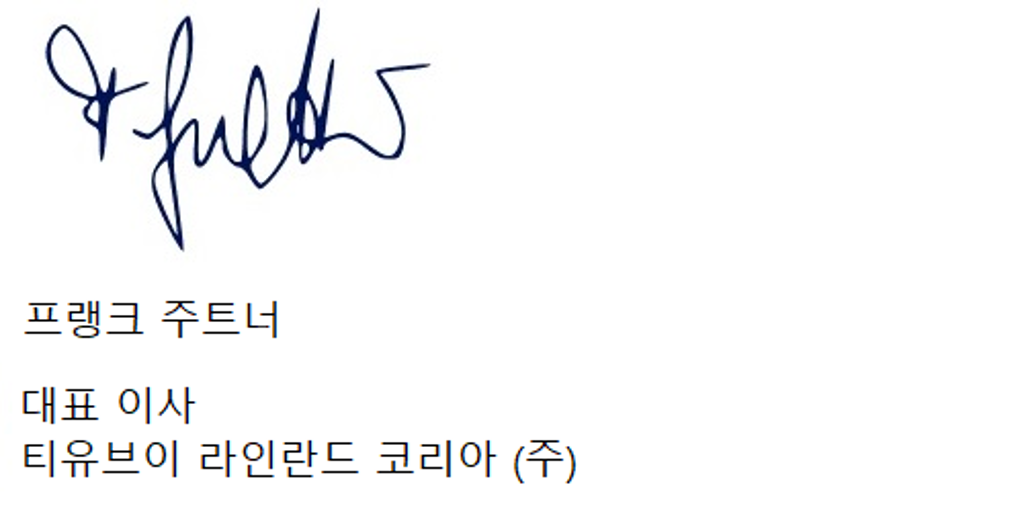공평성, 독립성 및 무결성
인증 목적으로 제품 또는 경영시스템을 평가하는 당사 직원은 이에 대한 상담이나 기술 자문에 참여해서는 안 됩니다. 인정 규격에서 엄격하게 금지합니다. 제품의 설계, 제조 또는 판매에 관여한 기관 (고객 또는 고객을 대표하는 대리인)이 제품을 시험하는 경우. 티유브이 라인란드 그룹으로서의 전문적 명성을 보호하기 위해 우리는 직원과 외부 직원이 회사와 사회의 장기적 이익을 위해 윤리적이고 공평하게 행동할 것을 기대합니다. 내부 및 외부 직원은 자신 또는 회사를 이해 상충에 노출할 수 있다고 알려진 모든 상황을 공개해야 합니다. 당사의 인증기관은 이 정보를 사용하여 해당 직원의 활동 또는 이를 고용한 조직에 의해 제기된 공평성에 대한 위협을 식별합니다. 우리는 공평성에 대한 위험이나 위협 (아래 참조) 이 허용 가능한 수준으로 감소하였음을 입증 할 수 있을 때까지 내부 또는 외부 직원을 사용하거나 직접 고객으로부터 제품 / 서비스를 구매하지 않습니다.

4.2 공평성
(경영시스템 서비스 적용을 위해 ISO/IEC 17021인용, 원칙적으로 모든 서비스에 적용)
4.2.1 인증기관이 신뢰성 있는 인증을 제공하기 위해서는 공평하여야 하며, 또한 공평한 것으로 인지되어야 한다. 모든 내·외부 인원이 공평성의 필요를 인식하는 것이 중요하다.
4.2.2 인증기관의 수입원이 인증기관의 클라이언트가 지불하는 인증 비용이라는 점에서, 이는 공평성에 대한 잠재적인 위협으로 인식된다.
4.2.3 신뢰성을 획득하고 유지하기 위하여, 인증기관은 확보한 적합성(또는 부적합)에 대한 객관적인 증거에 근거하여 결정을 내려야 하며, 이러한 결정이 다른 이해관계자 또는 다른 관계자의 영향을 받지 않는 것이 중요하다.
4.2.4 공평성에 대한 위협에는 다음을 포함하나 이에 국한하지는 않는다.
a) 사리 추구 : 개인 또는 기관이 이익을 위해 활동함으로써 발생하는 위협. 인증과 관련하여 공평성에 위협이 되는 사항은 재정적인 사리 추구이다.
b) 자체 검토 : 개인 또는 기관 자신이 수행한 작업을 검토함으로써 발생하는 위협. 인증기관이 경영시스템 자문을 제공한 클라이언트의 경영시스템을 심사하는 것은 자체 검토의 위협이 된다.
c) 친분관계(또는 신임) : 개인 또는 기관이 심사 증거를 추적하는 대신, 지나치게 타인과 친밀하거나 타인을 신임함으로써 발생하는 위협.
d) 협박 : 교체되거나 상관에게 보고될 것이라는 위협과 같이, 개인 또는 기관이 공개적으로 혹은 비밀리에 강압을 받았다고 인식함으로써 발생하는 위협
5.2.9 인증기관의 활동은 경영시스템 자문을 제공하는 기관의 활동과 연계하여 마케팅되거나 제안되어서는 안 된다. 인증기관은 자문기관이 해당 인증기관을 이용하면 인증이 간단, 용이, 신속하거나 저렴할 것임을 언급하거나 의미하는 부적절한 연계 또는 발언을 하는 경우, 이를 시정하는 조치를 해야 한다. 인증기관은 특정 자문기관을 이용하면 인증이 간단, 용이, 신속하거나 저렴할 것임을 언급하거나 의미해서는 안 된다.
Impartiality, Independence and Integrity
Our employees who evaluate products or management systems for certification purposes must not engage in consultation or technical advice for these. Accreditation standards apply strict prohibitions, e.g. in case that products are tested by bodies (Clients or agents representing Clients) who have been involved with design, manufacturing or sale of the products.
In order to safeguard our professional reputation as the TÜV Rheinland Group, we expect our employees and external personnel to act ethically and impartially in the longterm interest of our company and society. We require personnel, internal and external, to reveal any situation known to them that may expose them or our company to a conflict of interests. Our certification bodies shall use this information to identify threats to impartiality raised by the activities of such personnel or by the organizations that employ them. We shall not use personnel, internal or external, or buy products/services from direct Clients, until we can demonstrate that the risks or threats to impartiality (see below) are reduced to an acceptable level.
Frank Juettner
Representative Director & CEO
TÜV Rheinland Korea Ltd.,
4.2 Impartiality
(quoted from ISO/IEC 17021 for management system services; applicable in principle to all our services)
4.2.1 Being impartial, and being perceived to be impartial, is necessary for a certification body to deliver certification that provides confidence.
4.2.2 It is recognized that the source of revenue for a certification body is its client paying for certification, and that this is a potential threat to impartiality.
4.2.3 In order to obtain and maintain confidence, it is essential that a certification body’s decisions be based on objective evidence of conformity (or nonconformity) obtained by the certification body, and that its decisions are not influenced by other interests or by other parties.
4.2.4 Threats to impartiality include the following:
a) Self-interest threats: threats that arise from a person or body acting in their own interest. A concern related to certification, as a threat to impartiality, is financial self-interest.
b) Self-review threats: threats that arise from a person or body reviewing the work done by themselves. Auditing the management systems of a client to whom the certification body provided management systems consultancy would be a self-review threat.
c) Familiarity (or trust) threats: threats that arise from a person or body being too familiar with or trusting of another person instead of seeking audit evidence.
d) Intimidation threats: threats that arise from a person or body having a perception of being coerced openly or secretively, such as a threat to be replaced or reported to a supervisor.
5.2.9 The certification body's activities shall not be marketed or offered as linked with the activities of an organization that provides management system consultancy. The certification body shall take action to correct inappropriate claims by any consultancy organization stating or implying that certification would be simpler, easier, faster or less expensive if the certification body were used. A certification body shall not state or imply that certification would be simpler, easier, faster or less expensive if a specified consultancy organization were used.